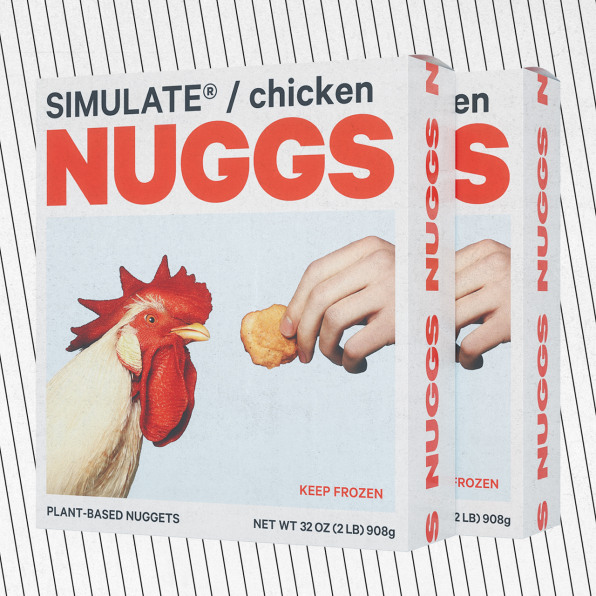How the Tesla of chicken hit a ludicrous growth mode thanks to ghost kitchens
Plant-based Nuggs embraced cloud kitchens as a way to just get product into people’s hands. Now it’s a vital testing lab and marketing tool.

Ben Pasternak had a problem. The founder and CEO of alt-meat startup Nuggs had seen plenty of initial buzz and success for his plant-based chicken nuggets, signing on investors that include AgFunder, McCain Foods, Reddit co-founder Alexis Ohanian, and former Whole Foods CEO Walter Robb since its founding in 2019. But as of mid-2020, the company wasn’t yet in retail stores or sold in any fast-food outlets.
Pasternak began brainstorming about how he could get Nuggs into people’s hands, beyond the company’s direct-to-consumer online sales. One idea was to have pop-up food trucks near college campuses, but he quickly realized that would be very tough to scale. “We were just thinking about the customer experience, and the A-plus experience would be to order Nuggs, it arrives 15 minutes later, you can spend $10, and it gets there with french fries and other sides, a drink, and some ketchup,” says chief operating officer Sam Terris. “So we worked backwards from there.”
That’s when they landed on ghost kitchens.
Euromonitor has estimated that ghost kitchens could be a $1 trillion industry by 2030. The concept has not only been used by established restaurant brands like McDonald’s and Chick-Fil-A experimenting with delivery and food prep efficiency, but it’s also launched a new wave of delivery-only restaurant brands in cities around the country. In Canada, Walmart is testing in-store ghost kitchens that offer restaurant meals from established brands like Quiznos, as well as items from well-known CPG brands like Beyond Meat and Ben & Jerry’s.

The company, which is now known as Simulate and whose mission is to develop “advanced nutrition technology,” has its products in retail stores around the country, most notably Whole Foods. Pasternak says the progression from DTC to ghost kitchens to retail gives the brand an advantage over brands trying to just launch in a single sales channel.
“We got so much traction over the past year, now launching into retail, it seems that companies that don’t have their own platform first find it very difficult to find traction,” says Pasternak. “Whereas for us, with DTC and cloud kitchens, we have this existing user base, and retail is just another way for them to get the product they’re already familiar with.”
Nuggs has now expanded its ghost kitchen options to Los Angeles (with New York coming soon), and both Pasternak and Terris say perhaps the biggest lesson so far has been how the ghost kitchen has emerged as a product-research platform and brand-awareness tool. “With retail and food service, the necessary evil is having these large distributors that aren’t agile at all, which doesn’t allow you to iterate quickly within their systems,” says Pasternak. “(Ghost) kitchens allow us to experiment with anything really quickly.”
Terris says the reason Nuggs initially started with direct sales was to have complete ownership and control of the distribution and research system. “But the speed with which we can do it in San Francisco and L.A. has been as quick or quicker than DTC, so it’s been nice for testing purposes.”
They’ve been using the ghost kitchens to beta test new products quickly, such as “Discs,” the brand’s chicken burger-like offering. Terris says that a deal with a major food operator is imminent, meaning that the company will have delivery distribution beyond its own operations. But both Pasternak and Terris say that they’ll keep their own ghost kitchens running, not necessarily for scale growth but because of the important role it plays in R&D.
“It will always be a really important testing ground, because we do have full ownership of it,” says Terris. “I think over time, two years down the road, it’ll be a product-testing iteration zone, plus a huge opportunity for marketing, collaborations, and stunts—as well as local drops for specific products.”








 User Center
User Center My Training Class
My Training Class Feedback
Feedback











